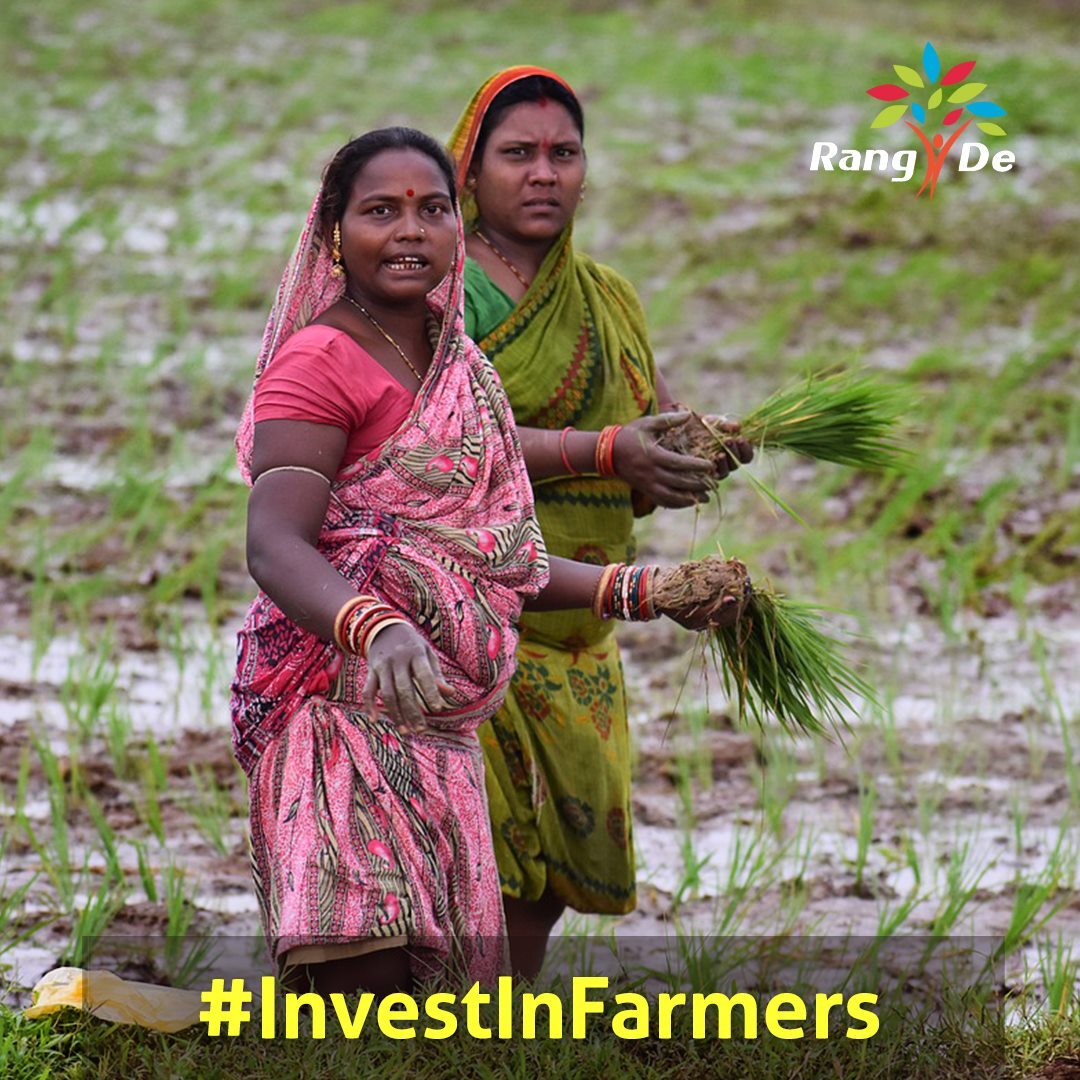Rang De: bringing colour to farmers’ dreams
16 June 2020 — Written by Shishir Ghosh

As we fervently hope for some semblance of normalcy in our already privileged lives during the pandemic, few of us remember and empathize with farmers, who have been hit the hardest.
Agriculture and allied sectors still form the major sources of livelihoods for our rural communities. Of the 14.5 crore farmers to be covered under the government scheme, 86.2% comprises small and marginal farmers with less than two hectares of cultivation land. While the focus of the relief measures has been this group of farmers, previous data shows that only 40% of them have access to formal sources of credit.
 (Source: Facebook account of Rang De)
Ever since the lockdown has begun, the farming community has been in a state of perpetual borrowing and repayment with banks, often with little success. The pandemic has, in a sense, pulled the curtains on a constant, subdued condition of forced hide and seek that is embedded in the agricultural sector. The money borrowed is spent on crops; harvest doesn’t sell during the pandemic; thus, there is no money to sustain livelihoods, let alone facilitate repayment with interest. The weight of a bank loan may suppress their lifestyles to some extent, yet it never truly disappears.
(Source: Facebook account of Rang De)
Ever since the lockdown has begun, the farming community has been in a state of perpetual borrowing and repayment with banks, often with little success. The pandemic has, in a sense, pulled the curtains on a constant, subdued condition of forced hide and seek that is embedded in the agricultural sector. The money borrowed is spent on crops; harvest doesn’t sell during the pandemic; thus, there is no money to sustain livelihoods, let alone facilitate repayment with interest. The weight of a bank loan may suppress their lifestyles to some extent, yet it never truly disappears.
Microfinance as a catalyst for social change
Experts in the field are increasingly in agreement that financial inclusion lies at the heart of microcredit. Closer to home, Rang De came to life in 2006 and today, it lends money to small businesses across the country. It duly eliminates the stressful negotiation and tiresome documentation involved in money lending processes, because there is no institution or bank associated. Regular citizens like us lend money to farmers, weavers and other beneficiaries who are looking for help to reshape their career. The members of Rang De felt that credit could be a powerful tool to help people fight poverty in India by educating and involving more people in the knowledge and manoeuvres of microfinancing. (Statistics show that through intelligent financing and information and resource distribution, in more than half of the countries of the world the share of the population in extreme poverty is now less than 3 percent.) Peer-to-peer lending or the practice of lending money to individuals or businesses through online services that match lenders with borrowers is quickly gaining steam in India. What makes Rang De special is that its founders pioneered the implementation of a loan strategy that revolutionized the personal connections that existed between lender and borrower. With a bank loan, a farmer would be dealing with a harsh, stringent entity that followed regulations and expected its money back on time, no matter what or how. But when someone benevolent enough sends money to small businesses, owned by what Rang De calls micro-entrepreneurs, he/she cannot help but sympathize with the condition of the person who has borrowed the money from him/her. The receiver in turn, will be grateful to have someone looking after the monetary aspect of the business. Through everything, as the business slowly flourishes, Rang De hopes to form an endearing bond between giver and taker, set in fulfillment of something more than just money.
What can young learners do?
According to Smita, hushed calls for help often lurk around the corners of our own households, in the form of our caretakers, maids, or drivers. Open discussions will not only ease their inhibitions about money talk, but will also give us the opportunity to indulge in the perspective of a member of society who is not fully financially literate and doesn’t have access to banks and credit as often. While there are several courses online which deliver essential information, Smita says the most effective ‘crash course to micro-credit and financial inclusivity can be imbibed in the simplest conversations with people you know and wish to help. A first-hand experience when you have a heart-to-heart talk with someone will more than just cajole you into a learning path, but it will also affect you personally, as you sympathize with the untold and unspoken conditions of people who live their lives walking on a tightrope. The reform of a crumbling institutional loaning ecosystem is the responsibility of every citizen in the country, and there is no lower limit to how young we can start. Smita and Ram are very excited to see the paradigm shift in our generation, with young learners flooding their initiative with ideas and innovative solutions to help overcome problems. Find the entire conversation on our YouTube channel and drop us a comment with your thoughts. If you would like to work with Rang De, contact them through their Facebook page or their official website.
**About Out of the Box with Beyond 8** Be it the way we learn or teach, there are always better ways to do it and often they lie out of the box, on the paths less taken. Out of the Box with Beyond 8 is an initiative that encourages the education fraternity to push the boundaries and challenge the status quo.